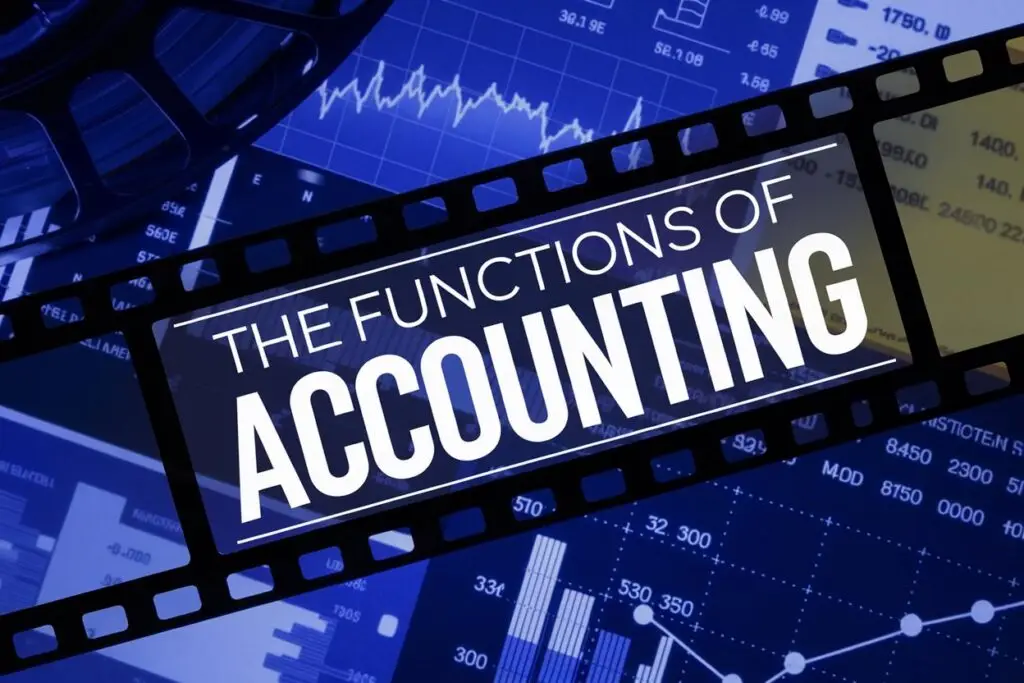The Functions of Accounting
Accounting is often referred to as the language of business, and for good reason. Its importance transcends various industries, providing crucial insights and facilitating informed decision-making. Whether you’re a budding entrepreneur or a seasoned business executive, understanding the functions of accounting will help you confidently navigate the complex world of finances.
Primary Functions of Accounting
At its core, accounting serves several essential functions, each contributing to a business’s overall financial health and sustainability. Below, we’ve summarized the key functions that accounting performs:
1. Recording Financial Transactions
- This is the foundational aspect of accounting. Every financial transaction—income or expenditure—must be accurately recorded to ensure the company’s financial statements reflect its true performance.
2. Classifying Financial Data
- Once transactions are recorded, they need to be classified such as assets, liabilities, revenue, and expenses. This classification helps in understanding the financial landscape of the business.
3. Summarizing Financial Information
- In this function, the classified data is summarized into financial statements, including the balance sheet, income statement, and cash flow statement. These documents provide a snapshot of the company’s financial health.
4. Interpreting Financial Data
- Accounting is not just about numbers; it’s about insights. Interpreting the financial data allows stakeholders to make informed decisions. For instance, understanding profit margins can help a company strategize on pricing.
5. Reporting Financial Performance
- Regular reporting ensures transparency. Businesses must prepare periodic financial reports to communicate their performance to stakeholders, including investors and regulatory bodies.
6. Budgeting and Forecasting
- Accounting also plays a crucial role in budget preparation and financial forecasting. By analyzing historical data, accountants can help businesses predict future financial performance.
7. Compliance and Control
- Meeting financial regulations is vital. Accounting ensures that businesses comply with tax laws, financial reporting standards, and other regulations, reducing legal risk.
8. Auditing
- Internal and external audits help verify the accuracy of financial statements. This function strengthens the credibility of the financial reports and builds trust among stakeholders.
9. Advisory Services
- Beyond the traditional roles, accountants often provide advisory services related to taxation, financial planning, and risk management.
“Accounting is the language of business.” – Warren Buffett
The Importance of Accounting in Business
Understanding the functions of accounting equips business owners and managers with the knowledge to make strategic decisions. Here are some reasons why accounting is crucial for any business:
- Informed Decision Making: Accurate financial data leads to better business decisions.
- Strategic Planning: By analyzing financial trends, businesses can identify opportunities for growth and improvement.
- Risk Management: Accounting helps identify potential financial risks, allowing businesses to mitigate them effectively.
Overview of Financial Statements
To grasp accounting functions better, it is beneficial to understand the three primary financial statements that shape a company’s financial narrative. Here’s a brief overview:
| Financial Statement | Purpose | Key Components |
|---|---|---|
| Balance Sheet | Displays the company’s financial position at a specific time | Assets, Liabilities, Equity |
| Income Statement | Shows the company’s profitability over a period | Revenue, Expenses, Net Income |
| Cash Flow Statement | Tracks the flow of cash in and out of the business | Operating, Investing, Financing Activities |
Frequently Asked Questions (FAQs)
The primary purpose of accounting is to systematically record, classify, and summarize financial transactions to provide valuable insights for decision-making.
Financial statements help businesses track their financial performance, comply with laws and regulations, and provide information to potential investors and creditors.
Businesses should update their financial records regularly—ideally daily or weekly—to ensure accuracy and timely decision-making.
Accountants typically need a degree in accounting or finance, and many pursue additional certifications, such as CPA (Certified Public Accountant) or ACCA (Association of Chartered Certified Accountants).
Absolutely! Even small businesses can greatly benefit from professional accounting services to manage finances effectively, comply with taxes, and gain insights for growth.
Conclusion
The functions of accounting are critical to the success of any business, big or small. From recording transactions to providing valuable insights and ensuring compliance, accounting serves as the backbone of effective financial management. By leveraging the power of accounting, businesses can streamline their operations, make informed decisions, and pave the way for sustainable growth. Remember, thoughtful and precise accounting transforms numbers into a narrative that tells the story of your business.



